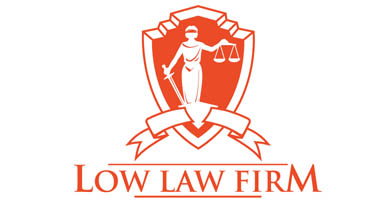What are punitive damages?
Punitive Damages: What are they and can you get them?
When discussing legal remedies in civil lawsuits, one term that often arises is “punitive damages.” This article delves into the concept of punitive damages, explaining what they are, why they are awarded, particularly in Texas, and the legal standards and limitations governing their application. If you have any further questions about punitive damages in Abilene, Texas call The Low Law Firm at 325-455-1889.

What Are Punitive Damages?
Punitive damages, also known as exemplary damages, are a type of compensation awarded to a plaintiff in a civil lawsuit. Unlike compensatory damages, which aim to reimburse the plaintiff for losses suffered (such as medical bills, lost wages, and pain and suffering), punitive damages are intended to punish the defendant for particularly egregious behavior and to deter similar conduct in the future. These damages are not tied to the actual harm suffered by the plaintiff but are instead based on the nature of the defendant’s actions.
Why Are Punitive Damages Awarded in Texas?
In Texas, punitive damages are awarded to achieve several objectives:
Punishment: To penalize the defendant for conduct that is deemed extraordinarily reckless or malicious.
Deterrence: To discourage the defendant and others from engaging in similar conduct in the future.
Vindication: To affirm the plaintiff’s rights and the societal expectation of lawful behavior.
Punitive damages are typically awarded in cases where the defendant’s conduct goes beyond mere negligence and enters the realm of gross negligence or malice.
Gross Negligence and Malice in Texas Law
To understand when punitive damages may be awarded, it’s important to define two key legal concepts: gross negligence and malice.
Gross Negligence: In Texas, gross negligence refers to a severe degree of negligence that shows a blatant disregard for the safety and welfare of others. It is more than a mere failure to exercise reasonable care. Gross negligence implies a conscious indifference to the rights, safety, or welfare of others. Texas defines gross negligence as such.
Malice: Malice, in legal terms, means a specific intent by the defendant to cause substantial harm to the plaintiff. It involves intentional and willful misconduct.
Evidence Considered by the Jury
For a jury to award punitive damages in Texas, there must be clear and convincing evidence that the defendant acted with gross negligence or malice. This is a higher standard of proof than the “preponderance of the evidence” standard used in most civil cases. The jury must consider factors such as:
The nature of the defendant’s conduct.
The degree of reprehensibility of the defendant’s actions.
The duration of the conduct and any concealment.
The defendant’s awareness of the potential harm.
The harm caused or likely to be caused by the defendant’s actions.
The defendant’s net worth (in some cases, to ensure the punitive damages serve their intended purpose).
Caps on Punitive Damages in Texas
Texas law imposes caps on punitive damages to prevent excessive awards. Under Texas Civil Practice and Remedies Code § 41.008, punitive damages are limited to the greater of:
Two times the amount of economic damages plus the amount equal to any non-economic damages (not to exceed $750,000), or
$200,000.
These caps are designed to balance the need to punish and deter wrongful conduct with the need to avoid excessive financial burdens on defendants.
Punitive damages play a crucial role in the Texas legal system by punishing egregious behavior and deterring future misconduct. To be awarded punitive damages, a plaintiff must demonstrate that the defendant acted with gross negligence or malice, supported by clear and convincing evidence. While Texas allows for significant punitive awards, it also imposes caps to ensure these awards remain reasonable and just. Understanding these principles helps in appreciating the complexities and purposes of punitive damages in the realm of civil litigation.
If you have been suffered personal injuries and are unsure whether or not you are entitled to seek punitive damages, contact a personal injury lawyer at The Low Law Firm today for a free consultation. (325) 455-1889.
